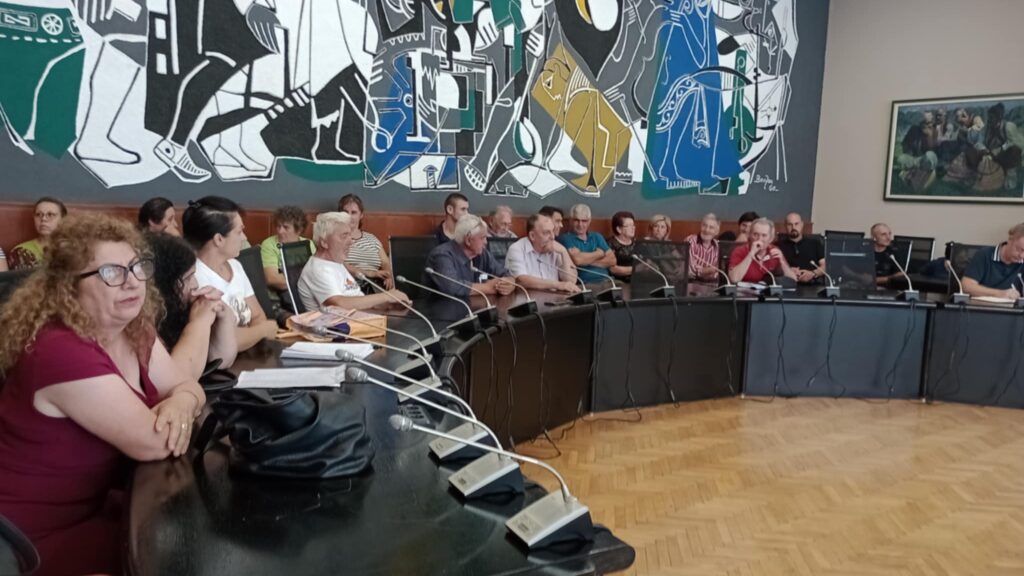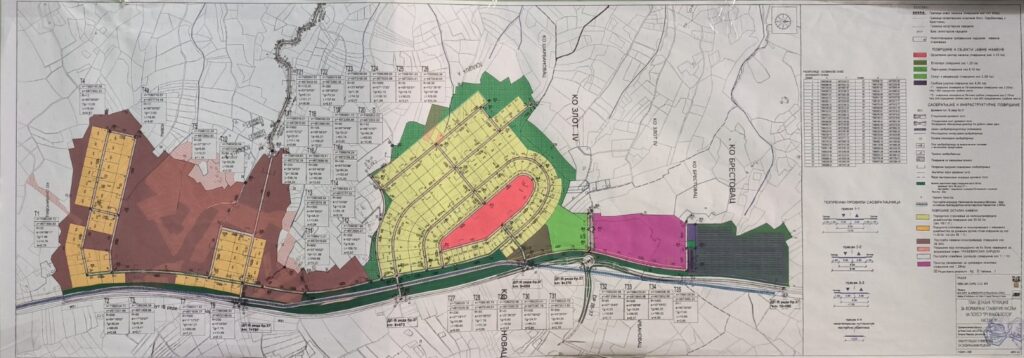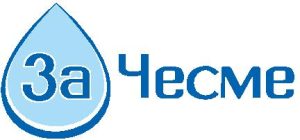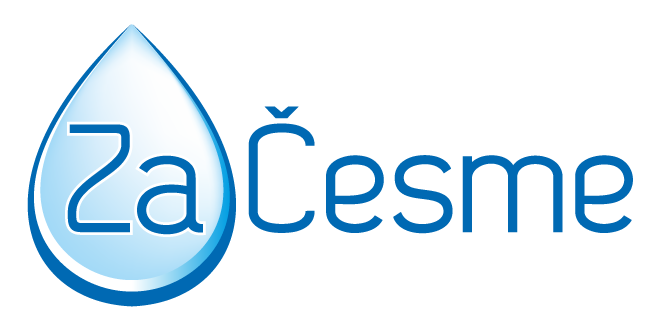
21/08/2024
Most Private Landowners in the “Trujkanov potok” Area Demand the Exclusion of Their Parcels from the Planned New Settlement for Krivelj
At the public session of the Planning Commission of the City Administration of Bor, held on August 15 in the City Administration building, regarding the draft Detailed Regulation Plan for the formation of residential settlements in the Trujkanov potok area, residents from several villages in the Bor region raised objections to the plan. Most of them confirmed that they would neither sell their arable land nor exchange it for more distant parcels offered as replacements.

Photo: Dejan Todorović
Tatjana Grofulović Simonović from the village of Šarbanovac stated that it was only at the end of May this year that they saw the draft Plan, which included about 40 of their arable parcels planted with walnuts, vineyards, and fruit trees. Although these parcels are currently in the so-called orange zone, meaning they are temporarily exempt, the residents of Šarbanovac fear that their fields might eventually be affected. During the public hearing at the end of May, they were told to submit their objections to the draft Plan to the commission, which they did. However, at this meeting, they were informed that the commission is not authorized to exclude their parcels from the Plan.
It is worth recalling that the public discussion on the Draft Detailed Regulation Plan for the formation of three new residential settlements in the Trujkanov potok area, primarily intended for the resettlement of residents from Bor villages affected by mining activities, concluded at the end of June. However, most residents whose fields are located in the areas of the villages Brestovac, Šarbanovac, and Zlot, included in the plan, claim that there are many ambiguities and uncertainties, and that the entire process is being carried out hastily, to their detriment. For the early public review and later public insights into the Trujkanov Potok Plan draft, village residents could only learn about it through digitalmedia, which is insufficient, as noted by Dejan Lazar, a master’s degree mining engineer from the citizens’ association “Glasno za omladinu”.
Dragomir Ristanović from the Regulatory Institute for Renewable Energy and Environmental Protection (RERI) also presented objections to the draft Detailed Regulation Plan for the formation of residential settlements in the Trujkanov potok area before the members of the commission and representatives of the Institute of Architecture and Urbanism of Serbia. He stated that they had criticized the procedures carried out, primarily highlighting the lack of numerous studies, analyses, and documentation that would justify the proposed planning solution.
The residents of Krivelj, who were among the first to be planned for relocation to a new location, now feel unwanted and deceived. Jasna Tomić believes that there is no place for the residents of Krivelj at the Trujkanov Potok location; that the village of Krivelj and other villages were largely displaced precisely because the necessary documentation was not formed in time and because no measures were taken to prevent Chinese companies from displacing the population. In her opinion, the responsibility for this lies with the local government, the Ministry of Mining and Energy, and the Government of Serbia, which did not pay attention to the population of Bor and the impacts that Chinese companies have on their lives.
A closed session of the City Administration’s Planning Commission will be held in the coming period, during which the members will provide their final decision on the citizens’ submitted objections and forward the report to the relevant authorities within the City Administration of Bor.
Association “Za Drinking Fountains”
This text was produced within the project “Environmental response to mining expansion in Timočka Krajina” funded by the European Union, and implemented by the Association “Za Drinking Fountains”, the Association of Young Researchers Bor, Civic Library “Europe” Bor and Children’s Center Zaječar. The content of the text is entirely responsibility of these associations and do not necessarily reflect the views of the European Union.




